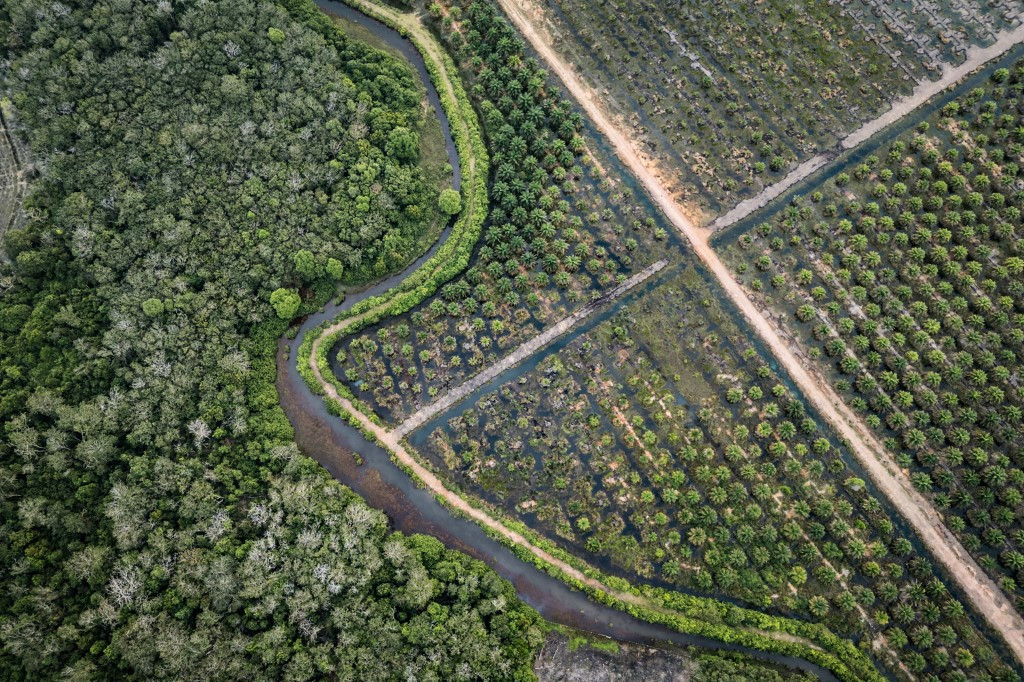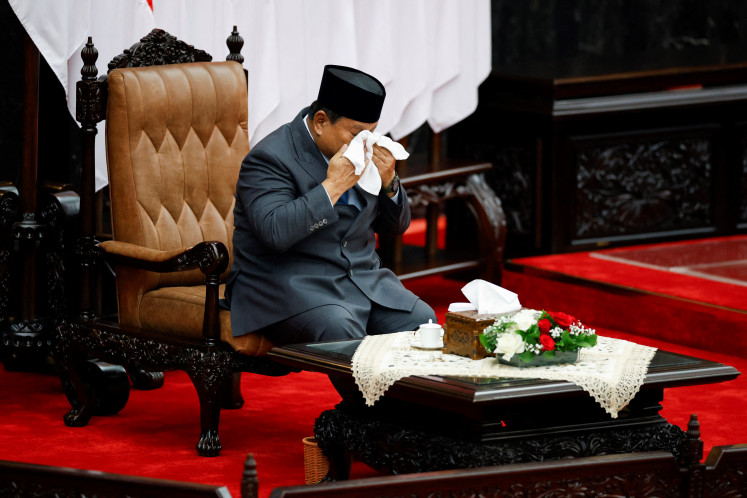Popular Reads
Top Results
Can't find what you're looking for?
View all search resultsPopular Reads
Top Results
Can't find what you're looking for?
View all search resultsForests depend on leadership, law and advocacy
How Indonesia and Brazil have cut down on deforestation.
Change text size
Gift Premium Articles
to Anyone
T
he vast tropical forest nations of Indonesia and Brazil are both home to millions of people, including indigenous communities. They store enormous amounts of carbon to protect our climate and are home to staggering numbers of species found nowhere else in the world.
How are their forests still standing while other forests have fallen? Answering this question is critical in the current global moment. As people gear up for the 30th United Nations climate summit (COP30) in Belém, Brazil, in November, this “Amazon Cop” could help galvanize action to save the world’s forests with a clearer blueprint for success.
While progress at global climate and biodiversity summits often seems limited, our study highlights how sustained pressure from civil society and international commitments can lead to improved political will for forest protection.
In the agricultural powerhouse of Brazil, 60 percent of the land area (511 million hectares, more than 20 times the size of the United Kingdom) is still covered in natural forests. In the diverse archipelago of Indonesia, known for its globally important production of palm oil, among other tropical crops, 50 percent of the land (nearly 94 million ha) remains.
Last year, global records for deforestation were shattered, with 6.7 million ha of pristine tropical forests being cleared, an area almost the size of Ireland. Even by recent standards this was a huge amount of loss, driven by raging fires in the hottest year on record. Yet over 1 billion ha of tropical forests remain. Two of the forest giants, Brazil and Indonesia, have both bucked the trend of increasing forest loss at different times in recent years.
Brazil reduced deforestation in the Amazon rainforest by 84 percent between 2004 and 2012. However, deforestation picked up again in the late 2010s and under president Jair Bolsonaro’s administration.
In Indonesia, a similarly impressive 78 percent reduction in deforestation was achieved between 2016, when devastating forest fires created a haze across south-east Asia, and 2021. Fortunately these reductions have been sustained, at least for now.
To understand the reasons for Brazil and Indonesia’s success, we brought together the world’s leading experts in forest conservation in these two regions. Most of them came from these two countries.
By asking our experts to participate in multiple rounds of surveys and providing feedback on responses from one round to the next, we could identify the full range of factors that are important for protecting forests. This approach, known as a Delphi process, enabled us to avoid groupthink or excessive influence by strong-willed or well-respected characters.
Our results were clear: across both countries, our experts judged that political will and law enforcement were by far the most important factors for protecting forests.
The study revealed how international diplomacy and advocacy by civil society have been pivotal in creating the awareness and demand for political leadership to emerge. Moving to the 2010s, indigenous rights were seen as an important complement to political will and law enforcement.
These results point to the need to accelerate pressure on policymakers to protect forests and continue to spread public awareness. This is a difficult task with a human toll: worldwide, more than 2,100 environmental defenders were killed between 2012 and 2023.
Political will to conserve forests also waned in the late 2010s in Brazil, and is in question under the current Indonesian administration.
Yet the need for instant results and a temptation to pursue the latest big idea should not overshadow the long-lasting and hard-won consequences of sustained pressure for good forest stewardship.
As policymakers, activists and scientists from around the world converge on the Amazon for the next UN climate summit, the message from our research is clear: above the fray of tense negotiations and discussions over policy minutiae, political leadership and persistent advocacy can and do protect forests. We have done it before, and we can do it again.
---
Rachael Garret is Moran Professor of Conservation and Development, Joss Lyons-White is a postdoctoral research associate on conservation science and Matthew Spencer is a visiting fellow on conservation, all at the University of Cambridge in the United Kingdom. The article is republished under a Creative Commons license.











